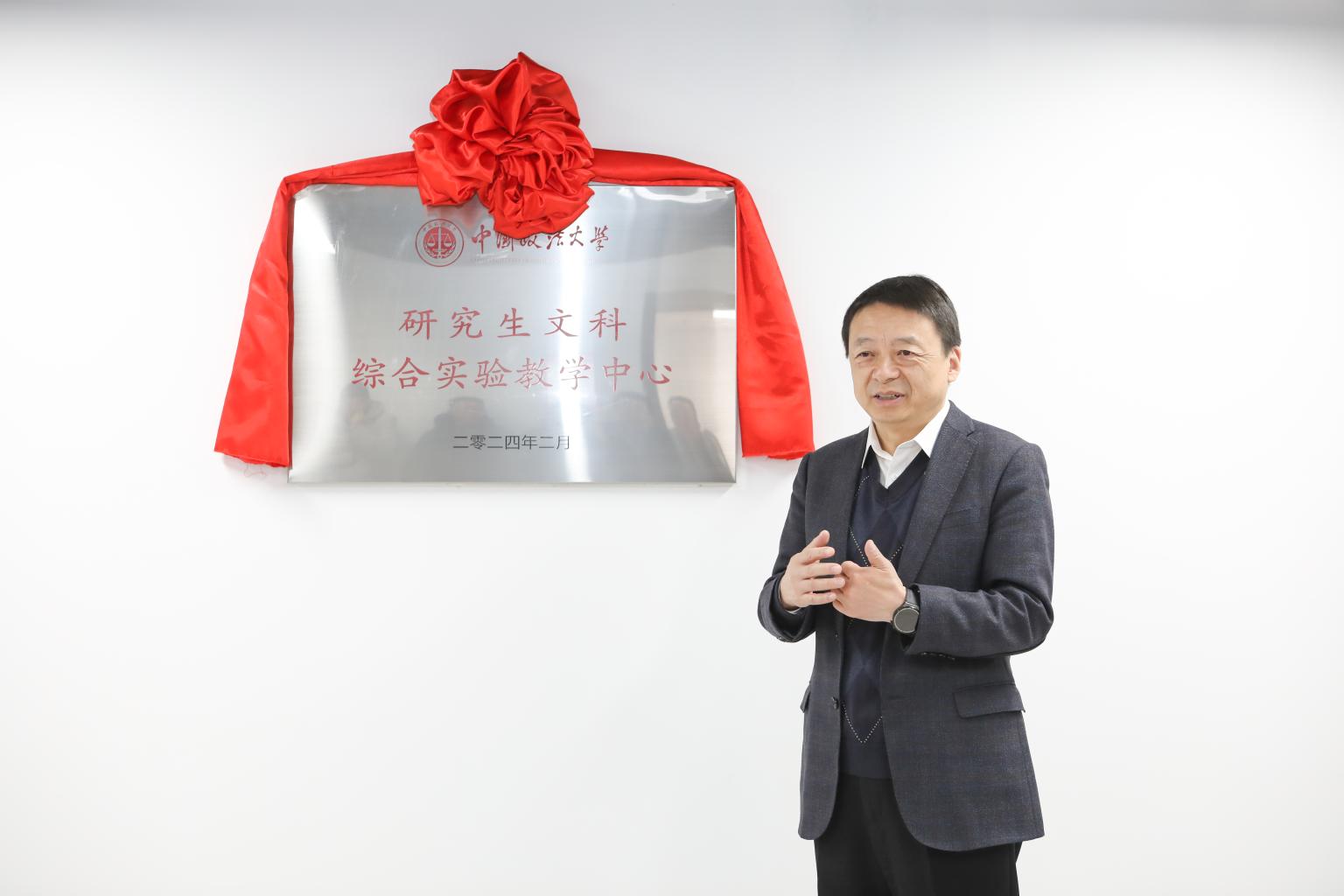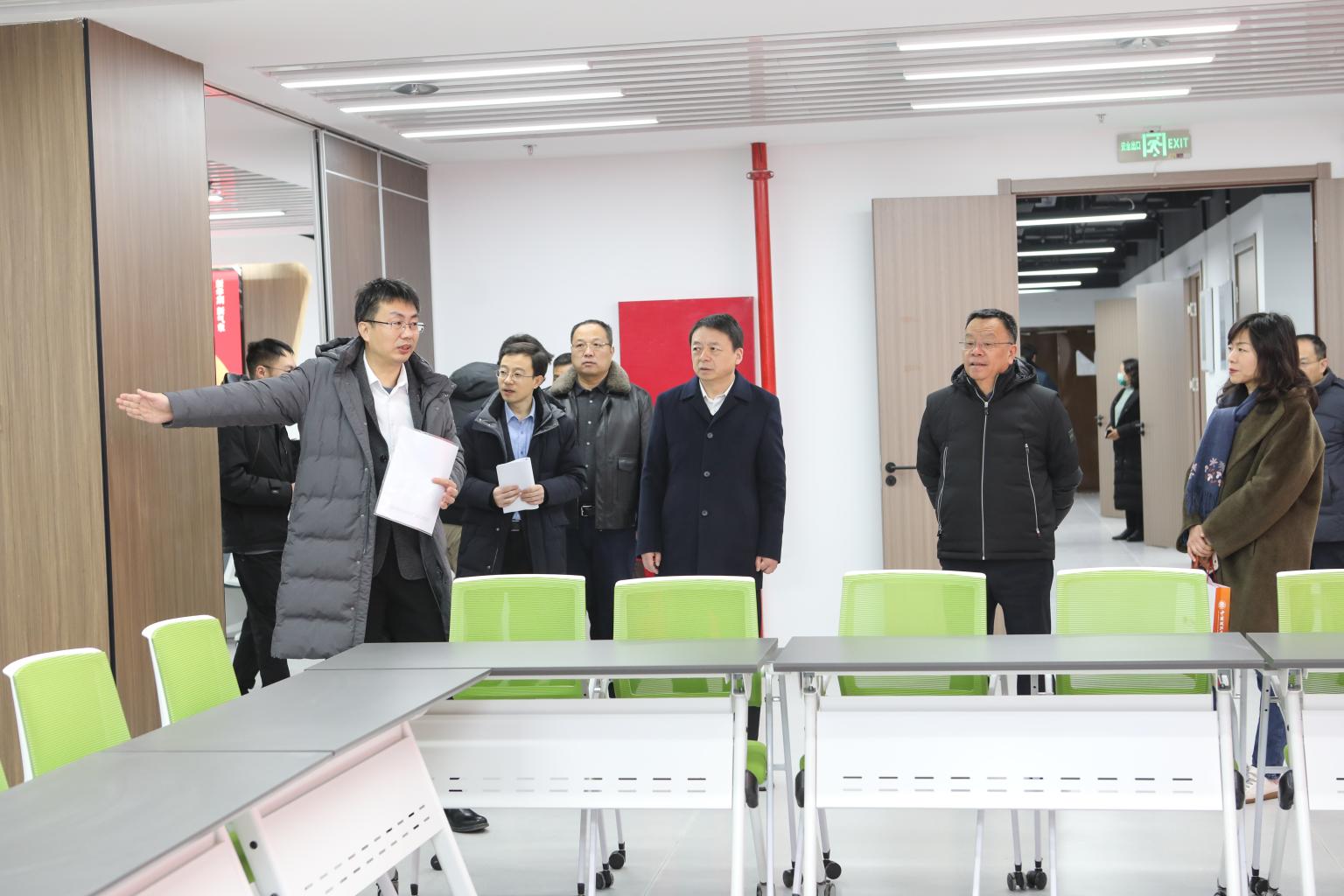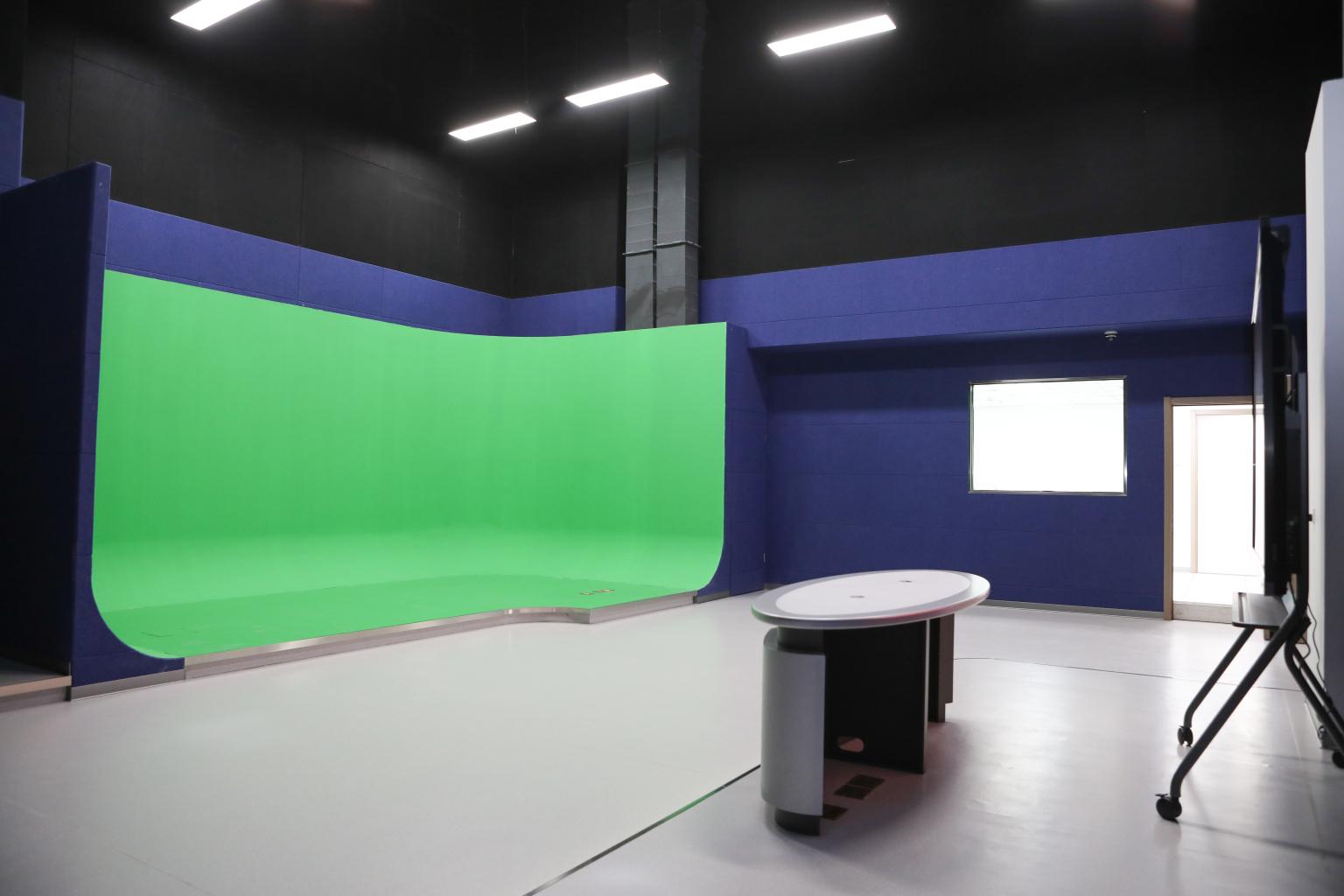On February 26, the Postgraduate Liberal Arts Comprehensive Experimental Teaching Center was inaugurated at the Haidian Campus, China University of Political Science and Law (CUPL). President Ma Huaide, Vice Presidents Shi Jianzhong and Lu Chunlong attended the ceremony. The establishment of the Postgraduate Liberal Arts Comprehensive Experimental Teaching Center responds to the imperative of nurturing innovative talents in the new liberal arts and building an experimental teaching system. It aims to enhance the comprehensive qualities and professional capabilities of talent development, integrating laboratory construction needs across CUPL disciplines through unified planning and construction.

(President Ma Huaide speaking, photo credit: Yin Jianfeng)
In his address, President Ma Huaide emphasized the significance of the center's construction and utilization in the history of graduate education at CUPL. He highlighted its pivotal role in promoting graduate student cultivation and stressed the importance of effective management and maintenance to continuously enhance graduate education quality and highlight its distinctive features.

(The inauguration of Postgraduate Liberal Arts Comprehensive Experimental Teaching Centre, photo credit: Yin Jianfeng)

(The Postgraduate Liberal Arts Comprehensive Experimental Teaching Center, photo credit: Yin Jianfeng)
The Postgraduate Liberal Arts Comprehensive Experimental Teaching Center comprises functional areas such as a comprehensive big data teaching and research platform for liberal arts, a 4K ultra-clear studio (legal culture workshop), a liberal arts integration workshop, and a liberal arts comprehensive teaching seminar area (big data and media integration exhibition area). These facilities cater to a wide range of needs, including big data and artificial intelligence experiments, multimedia image production, small-scale performances, practical discussions, case teaching, simulation seminars, course recording, cultural promotion, and interviews.

